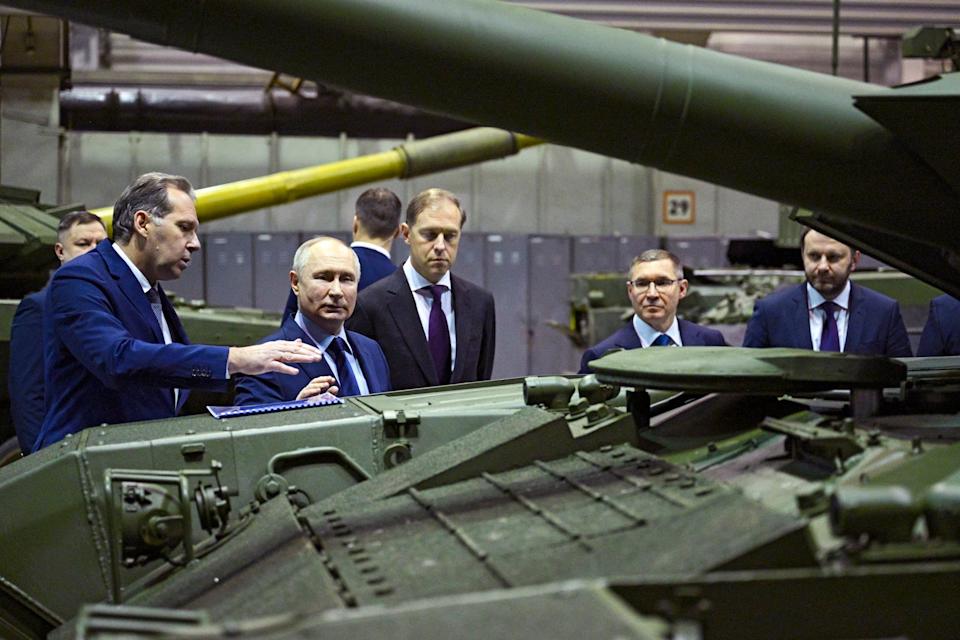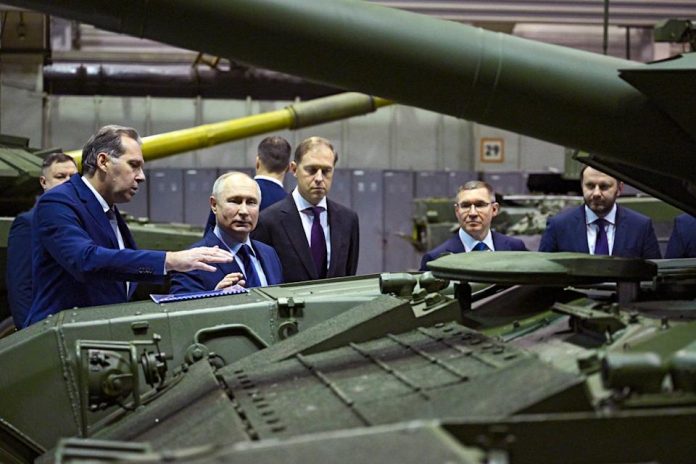Russia’s once-thriving arms export industry is in freefall. Once the world’s second-largest arms supplier, Russia has seen its defense sales plummet as the war in Ukraine consumes its military production capacity and drives foreign buyers away.
Russia’s Arms Export Collapse
Since launching its full-scale invasion of Ukraine in 2022, Russia has suffered severe setbacks in its military industry. A report from the Stockholm International Peace Research Institute (SIPRI) reveals that Russian arms exports fell by a staggering 50% between 2019 and 2023. Other experts suggest the situation is even worse.
Defense analyst Pavel Luzin, a senior fellow at the Center for European Policy Analysis (CEPA), estimated that Russia’s arms exports totaled less than $1 billion in 2024, a steep drop from $14.6 billion in 2021. The decline continued in 2022 ($8 billion) and 2023 ($3 billion), showing a rapidly shrinking market for Russian weapons.
Adding to Russia’s woes, France has now overtaken it as the world’s second-largest arms exporter, signaling a major shift in global defense markets.
Why Is Russia Struggling to Sell Weapons?
There are two key reasons behind Russia’s declining arms exports:
- War Priorities Over Exports
With the war depleting its military stockpiles, Russia’s arms manufacturers have redirected most of their resources to replenishing the country’s battlefield losses rather than fulfilling international contracts. - Loss of Foreign Buyers
Before the war, Russia sold weapons to 31 countries in 2019. By 2023, that number had fallen to just 12, as former clients sought alternative suppliers.
The Impact of Battlefield Losses
Russia’s military has suffered unprecedented losses in Ukraine. Open-source intelligence group Oryx has documented the destruction of:
- 3,773 tanks
- 1,933 armored fighting vehicles
- 5,531 infantry fighting vehicles
- 615 armored personnel carriers
- Nearly 2,000 artillery pieces
Since these numbers are based on verified photos and videos, the real figures are likely much higher. The Russian military has been forced to reactivate outdated Soviet-era equipment to fill the gaps, but analysts predict that Russia’s old stockpiles may be depleted by the end of 2025.
Can Russia Maintain Its Military Production?
While Russian arms companies have ramped up production, their efforts face major roadblocks:
- Sanctions: Western-imposed trade restrictions have cut off Russia from essential materials, including high-tech components and machine tools.
- Labor Shortages: The war has drained Russia’s workforce, making it harder to meet production demands.
- Financial Constraints: Despite increased state funding, the long-term sustainability of Russia’s defense industry remains uncertain.
Who Is Taking Russia’s Market Share?
Several countries have stepped in to replace Russia as a top arms supplier:
- The United States has become the leading arms provider in Asia and Oceania, previously dominated by Russian exports.
- China has overtaken Russia in Sub-Saharan Africa, where it now supplies the majority of weapons.
- South Korea is expanding its influence with faster production times and NATO-compatible systems, making it an attractive alternative for former Russian clients.
Reputation Damage and the Future of Russian Arms Sales

Beyond logistical and economic struggles, Russia’s military reputation has suffered a major blow. The war in Ukraine has exposed the weaknesses of Russian-made weapons, including the much-hyped S-400 missile system, which has been proven vulnerable on the battlefield.
With foreign buyers losing confidence in Russian technology and maintenance becoming more difficult due to sanctions, many nations are shifting to more reliable Western and Asian suppliers.
Will Russia Recover?
Even if the war in Ukraine ends, Russia’s arms industry may never return to its former strength. Luzin warns that reclaiming lost ground in the global arms market could be nearly impossible. The war has not only devastated Russian exports but also accelerated the rise of its competitors, leaving Moscow struggling to stay relevant in the defense industry.



